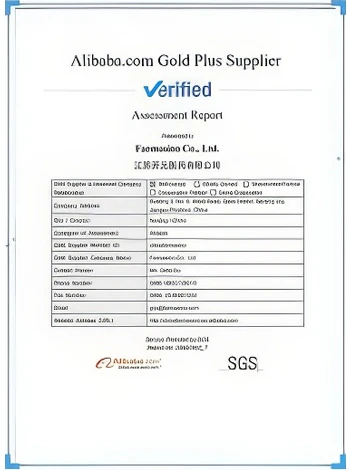



examples of water disinfectant
Examples of Water Disinfectants Ensuring Safe Drinking Water
Water is essential for life, yet it can sometimes carry harmful microorganisms that pose significant health risks. Disinfection is a critical process to ensure the safety of drinking water, rendering it free from pathogens such as bacteria, viruses, and parasites. There are several methods and substances used in water disinfection, each with its advantages and limitations. This article will explore some common water disinfectants and their applications.
1. Chlorine
Chlorine is one of the most widely used disinfectants in municipal water treatment. Often applied in the form of sodium hypochlorite or calcium hypochlorite, chlorine effectively kills a broad spectrum of bacteria and viruses. It works by penetrating the cell walls of microorganisms and disrupting their functions. Chlorination not only disinfects water but also helps in the removal of unpleasant tastes and odors caused by organic materials.
However, while chlorine is efficient in microbial inactivation, it can react with organic matter in water to form disinfection byproducts (DBPs) such as trihalomethanes (THMs), which are potential carcinogens. This has led to increased research and usage of alternative disinfectants in various settings.
2. Ozone
Ozone (O₃) is a powerful oxidizing agent and is recognized for its ability to disinfect water without leaving harmful residues. Ozonation is a physical process that involves dissolving ozone gas in water, which effectively destroys contaminants and pathogens. Ozone is effective against protozoa such as Giardia and Cryptosporidium, which are resistant to chlorine.
The use of ozone in water treatment, however, comes with certain challenges. Ozone must be generated on-site due to its instability, and it has a shorter residual effect compared to chlorine, meaning that its disinfectant properties diminish quickly after application. Therefore, ozonated water is often used in combination with other disinfection methods for optimal results.
examples of water disinfectant

3. UV Radiation
Ultraviolet (UV) light is another increasingly popular method for disinfecting water. UV systems use specific wavelengths of light to penetrate the microorganisms' DNA, preventing them from replicating. UV treatment is effective against a wide range of pathogens, including viruses and bacteria, and does not involve the use of chemicals.
One significant advantage of UV disinfection is that it does not alter the taste or odor of water. However, it also has its limitations. UV systems require transparent water for effective disinfection, as turbid or colored water can shield microorganisms from UV exposure. Additionally, like ozone, UV does not provide a residual disinfectant effect, meaning that water may need to be treated again if it is stored.
4. Hydrogen Peroxide
Hydrogen peroxide (H₂O₂) can also serve as a water disinfectant, particularly in advanced oxidation processes (AOPs) where it is combined with other oxidants like UV light or ozone. It is effective against a wide range of pathogens and can degrade organic pollutants in water. Furthermore, it breaks down into water and oxygen, leaving no harmful residues.
While hydrogen peroxide has significant potential, its application is generally more common in specific contexts, such as in groundwater remediation and in treating water in industrial settings rather than in typical municipal systems.
Conclusion
The importance of water disinfection cannot be overstated, as safe drinking water is critical for public health. Each disinfectant—be it chlorine, ozone, UV light, or hydrogen peroxide—has its own unique strengths and challenges. As drinking water sources become increasingly compromised, advancing our water treatment technologies and practices is paramount. Continued research and development in the field of water disinfection can ensure that everyone has access to safe, clean drinking water for generations to come.
-
Why Sodium Persulfate Is Everywhere NowNewsJul.07,2025
-
Why Polyacrylamide Is in High DemandNewsJul.07,2025
-
Understanding Paint Chemicals and Their ApplicationsNewsJul.07,2025
-
Smart Use Of Mining ChemicalsNewsJul.07,2025
-
Practical Uses of Potassium MonopersulfateNewsJul.07,2025
-
Agrochemicals In Real FarmingNewsJul.07,2025
-
Sodium Chlorite Hot UsesNewsJul.01,2025










